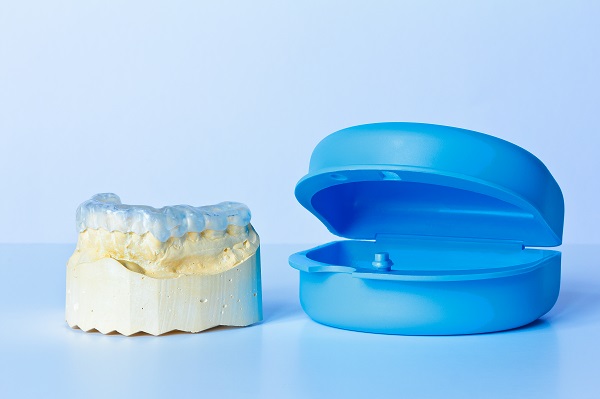Who Is an Ideal Candidate for Invisalign®?

Some people may feel embarrassed to wear traditional braces, especially adults who may feel they appear unprofessional or unattractive, but Invisalign® can make the process more bearable by offering a less noticeable option. Rather than relying on metal wires and brackets to adjust the teeth, this treatment method uses clear plastic aligners that are custom-designed to fit over the patient’s teeth and gradually straighten them.
While there are many different situations that these aligners can be used for, not everyone can benefit from this alternative. Learn what factors that make someone the ideal candidate for this solution.
Oral health and problems
A big factor that determines whether a person can be treated using Invisalign® is the person’s overall mouth structure and health. Some people's teeth are shaped or positioned in such a way that the aligners cannot fit snugly enough to effectively grab and move each tooth. Additionally, some cases are too complex for this discreet alternative and patients are more likely to achieve better results with regular braces.
Suitable cases
In general, invisible aligners can be used to address the following situations:
- Crossbite
- Underbite
- Overbite
- Open bite
- Spaces
- Overcrowded teeth
- Crooked teeth
Whether braces or aligners are acceptable to treat alignment issues is often up to the discretion of the dental professional in charge of the case. If any previous dental restorations are present or the situation is especially complicated, X-rays or further examination can help a dentist determine if additional procedures are necessary or if there is a more suitable alternative to consider.
Age and lifestyle
While childhood or adolescence is a common time for many to undergo orthodontic treatment, Invisalign® is only recommended for older teen or adult patients willing to follow the treatment guidelines. Clear aligners can be removed from the mouth and require the individual to be dedicated to following the treatment plan. Wearing the trays for less than 22 hours a day can prevent the patient from adequately progressing. Since children are often less mature and more forgetful, braces are more suitable as the metal devices are fixed onto the teeth.
Additionally, some adults who have a busy schedule or experience difficulties wearing the aligners for the prescribed amount of time may find more success trying other methods. However, many older patients prefer Invisalign® since it is a less obvious way to align the teeth and jaw. It is also easier to eat regular meals and clean the teeth since the trays can be removed at any time.
Conclusion
Starting a conversation with a dental professional about your situation is the simplest way to learn if you are a fit candidate for Invisalign®. Deciding between this solution and braces can be difficult for some people seeking teeth-straightening methods, but it is important to consider both personal preference and level of dedication when making a choice. A dentist can provide more information on the severity of the case and explain if clear aligners are a possible solution based on a patient's background and mouth structure.
Request an appointment here: https://drcalldental.com or call Dr. Call Dental Center at (706) 425-6240 for an appointment in our Dalton office.
Check out what others are saying about our services on Yelp: Read our Yelp reviews.
Related Posts
Dentures have come a long way, as we can now provide multiple options to address missing teeth — from one tooth to a full mouth restoration. With customized partial dentures, patients can restore the function and appearance of their smile. If you want to restore your smile’s functionality without sacrificing a natural, healthy appearance, take…
Extensive tooth loss can impact your oral health and quality of life. Fortunately, all-on-4 dental implants offer a reliable foundation for a renewed smile that supports your oral health and overall well-being. This innovative technique provides a stable, long-lasting solution for those who have lost most or all of their teeth and are looking for…
Considering dentures? Read on to learn more. For individuals dealing with tooth loss, dentures might offer a life-changing experience, both for their dental function and aesthetics. Millions of adults depend on dentures for their dental needs. According to a National Nutrition and Health Examination Survey, about 57% of Americans aged 65 to 74 and 51%…
Losing multiple teeth can affect not only oral health but also self-confidence, preventing you from fully participating in social situations and living a fulfilling life. Dentures are an effective solution to replace missing teeth, offering functional and psychological benefits. They can restore your smile and ability to speak confidently and chew food efficiently while improving…


